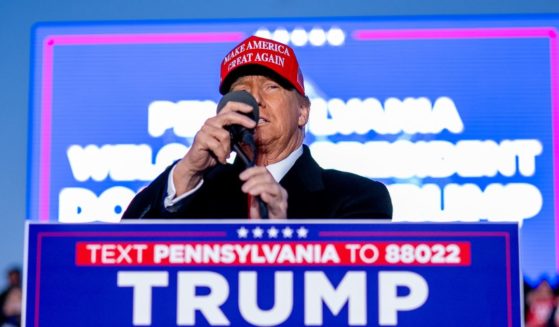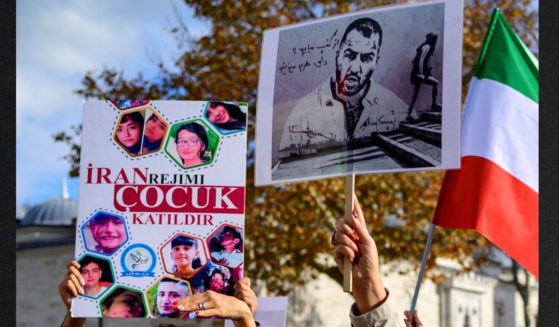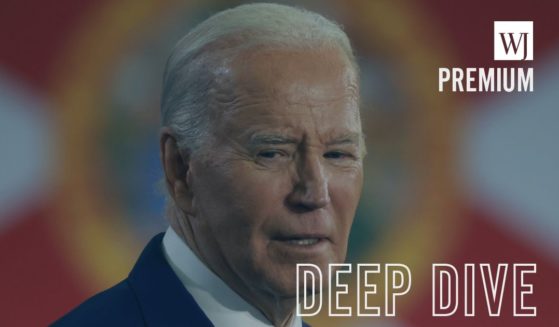Trump Used Walls to Stop Border Sex Predators, Harris Wants to Use Coffee
It’s been over 60 days since Vice President Kamala Harris was given some kind of amorphous authority to deal with the border crisis.
From what we’re to understand, this involves working with the so-called Northern Triangle countries of Central America — Guatemala, Honduras and El Salvador — to reduce the “root causes” of migration. This is a multifarious topic that’ll take years to solve — so as a salve for the border crisis, it’s not exactly the best thing to be focusing on. But focusing on it she has been, because she’s apparently been too busy to take a media briefing since she was appointed to the position. She also hasn’t visited the border.
However, don’t say her work hasn’t borne fruit. She’s now come up with a great new scheme to help put an end to the crisis: Have corporations spend their money in Central America.
In a meeting with executives from 12 companies at the White House on Thursday — including Mastercard, Microsoft and Nestlé’s Nespresso brand — the vice president announced a spate of investment initiatives meant to stop illegal immigration, according to The Wall Street Journal.
Mastercard? The company aims to bring 5 million people who lack banking services into the system. Yogurt giant Chobani plans to bring an entrepreneurial incubator to the region. Nestlé promised to buy $150 million in coffee by 2025 from the Northern Triangle countries.
Former President Donald Trump used walls and other forms of increased border security to stop illegal immigration. While we see record numbers of migrants at the border — as some Border Patrol sectors report an increase in captured convicted sexual offenders that’s over 3,100 percent greater than what they saw last year — the Biden administration offers coffee as a solution.
According to NPR, Harris framed this as a “call to action” for companies to invest in the region.
“When we work together, when we combine resources — limited though they are for each one of us — we can maximize the potential to give people in that region hope, and in that way also show what it means to be a good neighbor,” Harris said.
And that neighborly attitude will be reflected in coffee, entrepreneurial incubators and banking services. Aside from Nestlé’s agreement to buy more coffee from the region, the only other substantive public-private win announced on Tuesday was Microsoft’s pledge to expand internet access to 3 million people in the region by July of 2022, according to Reuters.
Two other Colombian financial services companies also pledged their support, Bancolombia and Davivienda, it reported.
Language-learning software company Duolingo also added its support to help fight illiteracy in the Northern Triangle, according to the Pittsburgh City Paper.
“My mother spent everything she had on my education, which undoubtedly changed my life,” said Luis von Ahn, founder of Duolingo.
Von Ahn Grew up in Guatemala, “[b]ut I am acutely aware that my outcome is extremely unusual for most people from Guatemala and our neighbors in the Northern Triangle, Honduras and El Salvador.”
As a long-game play, sure, this sounds fantastic. Reuters described it as “a win for Vice President Kamala Harris as she aims to lower migration from the region into the United States.” It may well be — sometime. It’s been well over two months since Vice President Harris was charged with diplomatic efforts to end the border crisis, which we’ve constantly been told can only be done by addressing “root causes.”
On Thursday, Harris was using language like “[i]n order for us as an administration, the United States government, to maximize the potential of our work, it has to be through collaboration, through public-private partnerships,” Reuters reported.
In the span of the time she’s been the point person on addressing “root causes,” the number of Border Patrol encounters with illegal immigrants at the southern border increased to 178,000 in April from 171,000 in March. The increase in apprehended sex offenders is eye-popping enough on its own. Meanwhile, the vice president isn’t scheduled to make her first foreign trip to any of the countries involved until June, when she’s expected to visit Mexico and Guatemala.
Without saying public-private partnerships in the Northern Triangle are a bad thing, perhaps the focus ought to have been on visiting Mexico and Guatemala first, then talking up entrepreneurial incubators with Chobani at the White House — at least from an optics standpoint.
Beyond the optics, it’s unclear what substantive work Vice President Harris has accomplished since Biden delegated the diplomatic heavy lifting in the Northern Triangle to her.
There’s a six-part strategy Harris has outlined for stopping migration from Guatemala, Honduras and El Salvador, according to Reuters. In addition to private-public partnerships like the ones announced Thursday, it includes initiatives to deliver affordable internet, increases in agricultural productivity and a transition to clean energy, among other things. It also involves an extra $310 million in aid to Central America that Harris announced in April.
There’s a big issue with this approach. In addition to positing this minor powwow as “a win for Vice President Kamala Harris as she aims to lower migration from the region into the United States” in the first paragraph of her story, Reuters’ Nandita Bose also manages to snag an award for this week’s most buried lede, way down in the 12th paragraph of her report: “U.S. officials see corruption as a major contributor to a migrant exodus from the region, along with gang violence and natural disasters, issues that represent hurdles for companies investing in the region.”
So yes, there’s that. Literacy and internet access only go so far when ineffectual and corrupt governments stifle economic growth and allow organized violence to fester. Northern Triangle countries take the top two spots in murder rate per capita by 2021 population, according to World Population Review, with El Salvador clocking in at 82.84 per 100,000 and Honduras with 56.52 per 100,000. (Guatemala is only 14th with 27.26 per 100,000, for what it’s worth.)
Much of this is attributable to narco-trafficking, something leaders in these countries haven’t shown particular alacrity in stopping for reasons you can probably guess at. One of the leaders Vice President Harris will be dealing with to address this pressing root cause will be President Juan Orlando Hernandez of Honduras, named as a co-conspirator in a drug trafficking case in the United States. According to ABC News, Hernandez’s “associate, now a convicted drug kingpin, has alleged that Hernandez accepted millions of dollars in bribes and helped protect a flood of cocaine into the U.S.”
As for the money the Biden administration is pouring into the region to address migration, the Los Angeles Times reported in March that they plan to keep it away from corrupt elements by funneling it through “nongovernmental organizations and programs for single mothers, youth training and similar groups.” Good luck with that, but what about the rest of the problem? What part of Harris’ six-point plan deals with ensuring, either via carrot or stick, that the real root causes of internal turmoil in the Northern Triangle are addressed?
There’s nothing and there will be nothing. The “root causes” theory of addressing illegal immigration, nice as it may sound as an alternative to enhancing border security, is rot unless the Biden administration is willing to get fully stuck into wholesale governmental reform in three dysfunctional states. Even then, the results would take years to manifest, yet this is how the administration is trying to solve a time-sensitive migration problem.
When it comes to walls vs. coffee, Americans are quickly discovering which is a more effective management tool for illegal immigration.
Truth and Accuracy
We are committed to truth and accuracy in all of our journalism. Read our editorial standards.












